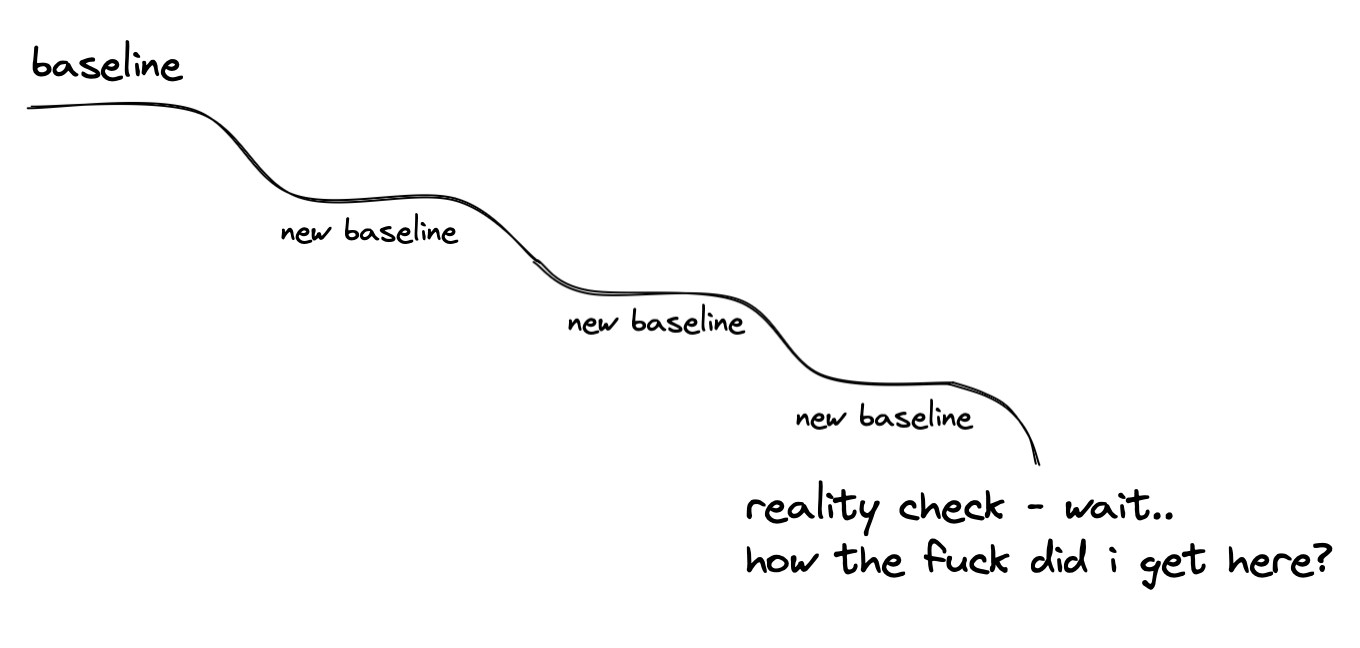Marginal vs Absolute Thinking
Last week, I had a chat with a fellow engineer when I said I would be willing to pay $20 / month for a good search engine. “So what’s wrong about Google?” I was surprised to be asked this question in response.
Sadly, the internet has been hijacked by capitalism at it’s worst. This poor state of affairs is a consequence of MBAs and marketing people in control. The engineers, who built this thing in the first place are now just optimising sales funnels for their superior professional-managerial class. Google is part of the problem. Just search for anything non scientific or non technical and you fall into someone else’s sales funnel because thats what the gatekeeper incentivises. Of course, to increase the value for shareholders. Auto-play videos, pop-ups, call to actions. Sign up, and get a free e-book! Fuck your free e-book. Free e-book was never in my search query in the first place. None of this garbage was.
Well, what’s even more worrisome is that it seems like we became accustomed to this rather quickly. If you already forgot and ask how should the internet look like, here is a quick reminder. When I search for “how camera works” I want to get this. A plain text website, simple visuals, created with the sole intention of educating me right there and then with no strings attached.
So, how did we get here? How did people get used to this degrading treatment? I suspect it’s the same way companies grow poor cultures, people get fat, destroy value or get used to the status quo. Marginal thinking seems like an appropriate description for the problem.

A first incremental step in the wrong direction feels just like a small misstep, no big deal. The problem is, the baseline changes, course correction requires an effortful instant self reflection and our monkey brains interpret the baseline increments in the log scale similarly to hearing and seeing. And so it goes that rarely someone steps back and asks how should things look like in absolute values. In other words, what does the real baseline look like. I tend to believe the things that somehow function and where value gets built is because of the kind of people who are aware of marginal thinking and themselves. I might be naive to believe this too, but I think most people at some point have a good intuition for a baseline that’s productive, to them and to everyone else.
On the other side, thinking in absolute values is a compass. If we were to set up a colony on Mars, what would it look like? What have we learned on earth? Would there be ads? Sometimes, these questions bring an instant clarity to the decisions I think about.
from Meditations on Moloch:
It’s kind of embarrassing that random nobodies can think up states of affairs better than the one we actually live in. And in fact most of them can’t. A lot of utopias sweep the hard problems under the rug, or would fall apart in ten minutes if actually implemented
This is probably one of them but at least it’s written with an intention to make things less bad, far from ideal. Also, there is a lot of hypocricy by not walking the talk. Participating in the problem is just as bad as creating the problem. It doesn’t make much sense to rebel against the ads while employing them for your own benefit. Everyone’s actions speak loud. Absolute thinking is only a way to direct them in a productive way for everyone.